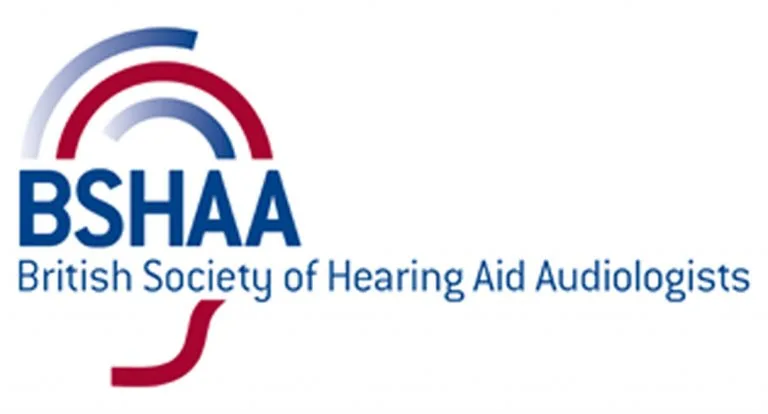Tinnitus Can't be Cured, But it Can be Treated
We Can Help
At James Hearing, we specialise in tinnitus treatment and rehabilitation. Clients are usually referred by ENT consultants, however, self-referrals are welcome to visit our practice. As no two people’s experience of tinnitus are the same, our initial consultation focuses on you, your tinnitus, the impact tinnitus is having on your quality of life and how we can alleviate your symptoms.

Tinnitus Consultation and Treatments
On the initial consultation, one of our expert Audiologists will review your relevant medical history and perform a range of diagnostic tests to assess your tinnitus and audiological profile. These tests are designed to diagnose your tinnitus type, pinpoint your tinnitus tone and identify any associated hearing loss that may be exacerbating the impact of your condition.
Your Audiologist will discuss the treatment options available to you and the likely prognosis following treatment. There will also be plenty of time for you to ask questions and explore self-help techniques, as we allow 90 minutes for your appointment.
Whether you have recently developed tinnitus, or have a longstanding diagnosis, our audiologist will be able to provide you with treatment options and expert advice based on the latest developments in tinnitus. While there is no cure for tinnitus, it often becomes less noticeable and more manageable over time. You can help ease the symptoms by educating yourself about the condition. That’s where we can help.
How We Help
Our three step process will help identify the underlying issue and move forward with a customised treatment plan for you
Assessment
Your assessment will include a comprehensive diagnostic battery of tests which include:
- Hearing Assessment
- Tinnitus Perception Test
- Tinnitus Questionnaire
- Tinnitus Tone Test – detecting your tinnitus sound
- Explanation of the Tinnitus Model
- Discussion on recent neuro-scientific and tinnitus research
- Evaluation of your objectives
- Treatment Options
Tinnitus Treatment
Your tinnitus is personal to you, at this stage we will be looking at the options agreed from your initial assessment to look at reducing your tinnitus. This may include a range of devices and exercises that we wish to help implement.
Review
Reviews are part of your treatment plan, incorporated with follow up appointments over 2-4 weeks, a further assessment in 6 months and annual check-ups.
Breaking The Cycle of Distress
We Can Help You Break The Cycle
In the illustration, tinnitus is likened to a dripping faucet. First, you notice the tinnitus, like you would notice a leaking kitchen faucet whilst laying in your bed at night. As the sound continues, it sets off a subconscious alarm in your head. This causes you to react negatively to the sound. You have a negative emotional response to the sound, irritation, anxiety or anger. This distress then triggers a physical, bodily response, increased heart rate, tensing muscles, or sweaty palms, causing a chain reaction that puts even more focus on the tinnitus sound. What started as a small, insignificant sound, grows into an all-consuming, stress-inducing roar, and the cycle continues as the brain adapts to constantly focusing on the sound.

This is an illustration from Oticon of the cycle of distress. It is a simplified interpretation of the causation of tinnitus model used by McKenna, Baguley and McFerran (2010). It is a simplistic representation of a complex process in the brain.
Evaluate and Treat Underlying Problems
Sound Therapy can Help to Relieve the Symptoms of Tinnitus

Listening to sounds can be a helpful tool for managing your tinnitus. Adding pleasant sounds to the sounds you hear already can reduce the impact of tinnitus by helping you move your attention towards the sounds you want to hear, rather than the sound in your head. Compare it to listening to a single violin in a room. Alone, you can only focus on the violin, but if you add a symphony orchestra to the violin, it becomes less distinct and part of the overall sound.
Masking - Hearing aids that play relieving sounds
Hearing aids can help you take control of your tinnitus by playing a wide range of relief sounds like white noise and soothing ocean-like sounds. With hearing aids, you can discreetly control the sounds in your hearing aids using Apps that have been designed by the leading brands for iPhone and Android.
You can adjust the sounds until they give the relief you need - wherever you find yourself needing it. What’s more, you can wirelessly stream alternative tinnitus relief options, such as your favourite music, audio books, podcasts, or even relaxation guides.
Hearing Aids
90% of people with tinnitus have an underlying hearing loss. If you have a hearing loss, no matter how mild it is, it can make your tinnitus worse because you will be straining to hear environmental sounds and thus listening more to your internal sounds i.e. tinnitus. Improving your hearing will mean that the environmental sounds that you will not be able to hear otherwise, will now be audible, which may help override the sounds of your tinnitus.
Here at James Hearing we have Advanced Hearing Aid Systems which we can program to cater for your individual hearing loss. All the leading hearing device manufacturers take a great interest and development in tinnitus as this plays a major role to allow hearing aids to play a multifunctional role in coping with anyone with tinnitus. As an independent hearing centre, we use leading manufacturers such as Phonak. Visit https://www.phonak.com/uk/en/hearing-aids/tinnitus-treatment/tinnitus-hearing-aids-and-solutions-portfolio.html for further information.
Book an appointment today for a consultation with one of our leading Audiologists. Consultations start at £150.




